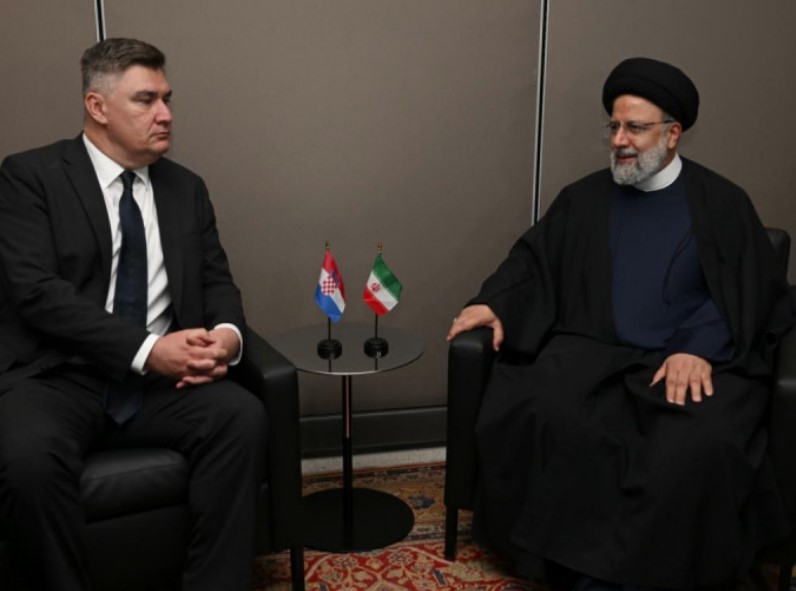 “If Iran were to recognize Israel, it would contribute to calming tensions in the Middle East,” said Croatian President Zoran Milanović to his Iranian counterpart Ebrahim Raisi today in New York.
“If Iran were to recognize Israel, it would contribute to calming tensions in the Middle East,” said Croatian President Zoran Milanović to his Iranian counterpart Ebrahim Raisi today in New York.
The two leaders met during the United Nations General Assembly session at the initiative of the Iranian president, Milanović’s office announced.
The Croatian president emphasized the need for better understanding among countries, stressing the importance of mutual recognition and respect, as well as the development of contacts and diplomatic relations.
What did Milanović say to the Iranian president? Milanović inquired about the reasons why Iran has not recognized Israel and conveyed his belief to his interlocutor that recognizing Israel would contribute to calming tensions in the Middle East, emphasizing that Croatia and Israel are friendly countries that cooperate closely, according to the statement.
For the same reasons, Milanović also emphasized the need for recognition of Kosovo, which would promote peace and international order in Southeastern Europe.
Stating that Croatia is a member of the EU and NATO, the President of Croatia said that this does not exclude cooperation and the development of bilateral relations with third countries.
“In this critical moment for the international community, when world peace is seriously threatened, it is important to engage in dialogue and seek areas of mutual understanding, while avoiding the imposition of one’s own values,” Milanović said to Raisi, who invited him to visit Iran.
Iran’s Nuclear Program Israel and Iran are fierce regional adversaries. Israel, which Iran does not recognize, sees that state as an existential threat, while Tehran claims that its missile program, one of the largest in the Middle East, is an important deterrence and retaliation force against the United States, Israel, and other potential enemies.
On Thursday, Iran successfully tested a ballistic missile with a range of 2,000 kilometers, two days after the commander of the Israeli armed forces announced a possible “action” against Tehran due to its nuclear program.
The nuclear agreement, from which Washington withdrew in 2018, imposed restrictions on Iranian nuclear activities that extended the time Tehran would need to produce enough fissile material for a nuclear bomb, if it so decided. Iran denies wanting nuclear weapons.